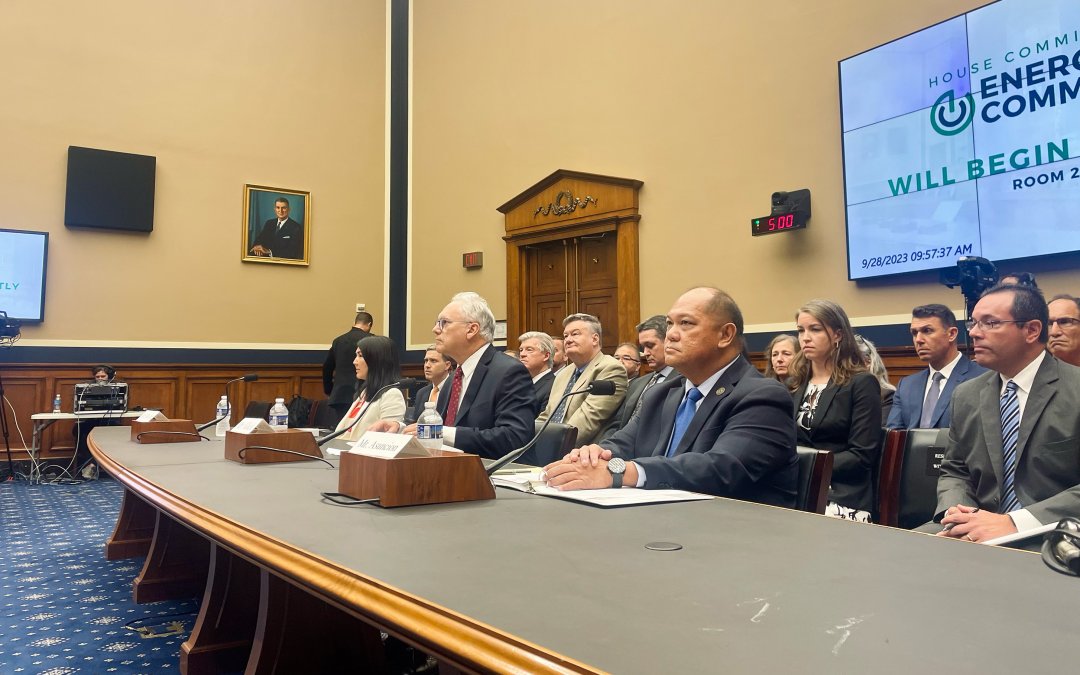WASHINGTON — Members of a House oversight and investigations subcommittee on Thursday grilled officials from Hawaii on their protocols and prevention policies two months after the country’s deadliest wildfire disasters in more than 100 years.
The wildfires that spread across Maui on Aug. 8 burned over 3,000 acres and killed at least 97 people.
House members convened the hearing as what they billed a “fact-finding mission” to probe the causes of the fire. Much of the blame so far has centered on Hawaiian Electric, a company that provides electricity to 95 percent of Hawaiians. It also faces lawsuits from locals and Maui County, as well as state officials who oversee Hawaii’s energy and utilities use. The company is staring down insolvency as the legal cases pile up. The company has denied many of the allegations.
Rep. Morgan Griffith (R-Va.), chair of the subcommittee, pointed to several culprits that shoulder some of the responsibility, including the lack of efforts by state officials to prevent non-native grass growth in the region, which aided to spread wildfires.
“Other reports have cited utility law experts to maintain that Hawaiian Electric waited too long to pursue important upgrades to modernize the electric grid against wildfire risks,” Griffth said at the hearing. “There were many decision-makers along the way, and there is still much to sort out”
Several experts and analysts have suggested that Hawaiian Electric should have learned from mistakes after fires hit Maui in 2018. And others in lawsuits claim Hawaiian Electric should have de-energized their electric grid as a preventionary measure to the weather reports – especially after the National Weather Service issued a statewide warning for high winds on Aug. 7, one day before the wildfires.
But, Hawaiian Electric testified that they de-energized their power grids by the morning of the 8 after a smaller fire near Lahaina caused by fallen power lines broke out.
Hawaiian Electric CEO Shelee Kimura said the company takes responsibility for the “morning fire,” but the cause of the “afternoon fire,” which devastated the island of Maui, remains unknown.
Rep. Michael Burgess (R-Texas) pressed Hawaiian Electric’s president and CEO, Shelee Kimura, on whether underground power lines would have prevented the wildfires. She replied that undergrounding is expensive on a small island like Maui. At the same time, pricing presents a challenge, as many long-time residents can no longer afford their homes in Hawaii, she continued.
Members of Congress also questioned the company on its use of wooden electric poles in a region; the lack of removal of invasive flammable plants around the electric grid; and whether the company conducted enough routine inspections.
Still, much remains unknown or unconfirmed about the exact events that took place during that period.
“While we in Congress have an important oversight role to play, I do think it would have been helpful to have the benefit of the on-the-ground findings from the authorities before pulling the attention of our witnesses away from recovery efforts,” Rep. Kathy Castor (D-Fla.) said.
The two members of Hawaii’s House delegation, Rep. Ed Case (D-Hawaii) and Rep. Jill Tokuda (D-Hawaii), both testified, calling for relief funds to be sent to the affected areas.
Case said once stability is restored in Maui, more answers would come to light. But right now, Congress should focus collective efforts to support Maui, such as financing the Disaster Relief Fund, he said.
Tokuda also asked how the federal government would continue to support Maui’s recovery in the face of an impending government shutdown.
“Our people have gone through enough,” Tokuda said. “The wheels of government must continue to turn and work to provide them the support and resources they so desperately need.”
For Maui, FEMA and the U.S. Small Business Administration have approved more than $65 million in assistance so far.
Survivors and representatives of victims were not invited to speak before Congress but eight came to the Capitol seeking answers. Instead of oral testimony, their attorneys filed written statements.
“The trauma of the day changed me, and I will never be the same again,” Andrea and Doc Ellis Pekelo, survivors of the 2018 and 2023 Maui Fires, wrote. “It will be a long journey to rebuild Lahaina, but we will be here for it.”
In her call for government aid, Tokuda emphasized the “human element of this tragedy.” Some are still waiting to hear news of their loved ones, as victims of the fire remain missing, Tokuda said.
“Homes, schools and business — they will be rebuilt. But the scars of trauma on our people, on our families, will take much, much longer to heal,” she said.

